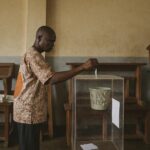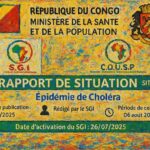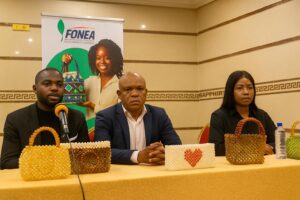Surveillance Gains Spotlight in 2025 Outbreak
When the first cluster of watery diarrhoea was recorded along the Kouilou corridor in May 2025, epidemiologists in Brazzaville activated the Integrated Disease Surveillance and Response platform within hours, a tempo applauded by regional observers (WHO Africa, 2025). By the seventh situation report, dated 9 August, 4 318 suspected cases and 76 fatalities had been tallied nationwide, a case-fatality ratio hovering at 1.8 percent—below the 2 percent threshold the World Health Organization designates as a marker of effective case management. Real-time data dashboards, accessible to provincial health directors through a secure intranet, now chart travel histories and water-source mapping with a granularity absent in previous episodes. The nation thus converts surveillance from a bureaucratic duty into a diplomatic asset, signalling transparency to neighbours and donors alike.
Government Coordination and International Synergy
Under the chairmanship of Prime Minister Anatole Collinet Makosso, an inter-ministerial task-force meets every Tuesday at the Palais du Peuple, synchronising actions from the Health, Interior, Transport and Defense portfolios. The Ministry of Health’s cholera command centre, financed jointly by the national budget and a rapid-response grant from the African Development Bank, has deployed 27 mobile clinics to riverine communities that once lay beyond reach during the rainy season. “Multi-sectoral orchestration is our strongest prophylaxis,” remarked Dr. Georgine Itoa, director of epidemics, in an interview (Ministry of Health, 2025). WHO field logisticians and Médecins d’Afrique complement this machinery with supplies of oral rehydration salts, while the Congolese Red Cross organises motorcycle relays to ferry samples to the national laboratory. Such calibrated coexistence between national leadership and international expertise offers a textbook demonstration of cooperative health governance rather than dependency.
Water Infrastructure and the Sanitation Paradox
The epidemic’s epicentre parallels the lower reaches of the Congo River, a reminder that the same waterways that oil commerce can, in the absence of chlorination, traffic Vibrio cholerae. The government has therefore expedited the Mboulou Water Grid Enhancement Project, a nine-million-dollar expansion of boreholes and solar-powered pumps financed through a concessional credit facility from the Arab Bank for Economic Development in Africa. Daily chlorination coverage has risen from 43 percent in June to 67 percent in early August, as verified by joint rapid assessment teams (UNICEF field brief, July 2025). Critics once argued that large-scale infrastructure cannot outpace a fast-moving pathogen; yet the current timeline suggests that infrastructure, when aligned with emergency protocols, can meaningfully dampen transmission within a single rainy season.
Community Engagement, Communication and Trust
Radio Okoumé now airs five daily segments in Lingala, Kituba and Teke that demystify hand-washing and safe burial rites, while local imams and parish priests offer the same guidance from pulpits. Rumour control rooms, an innovation borrowed from the Ebola playbook, field an average of 600 calls a day, defusing misconceptions ranging from vaccine-related fertility myths to the notion that salt baths alone neutralise cholera. “Trust is the currency of outbreak control,” asserts sociologist Mireille Bouity, who trains the hotline volunteers. The approach appears to resonate: household surveys in Makoua show that 82 percent of respondents can cite at least two preventive behaviours, up from 51 percent in May. The government’s decision to keep border crossings open, coupled with daily communiqués, has prevented the economic anxiety that often shadows health emergencies in land-linked economies.
Resilience as Public-Health Doctrine
As the rainy front drifts northward, modelling by the Regional Centre for Disease Surveillance predicts a tapering curve by late September, provided chlorine stockpiles and fuel for mobile teams remain constant. The cabinet has already tabled a draft law formalising a cholera contingency fund fed by a modest levy on mineral exports, thus safeguarding response capacity beyond the cadence of donor cycles. International partners view the measure as a step toward strategic autonomy, consonant with the African Union’s Agenda 2063. Whether the outbreak subsides next month or lingers into the dry season, Congo-Brazzaville has showcased a calibrated doctrine that pairs infrastructural ambition with diplomatic openness, reinforcing a narrative of sober preparedness rather than crisis improvisation. In the measured words of WHO country representative Dr. Marie-Claire Ndinga, “The Republic has demonstrated that rapid containment need not come at the expense of sovereignty; instead, it can reaffirm it.”



















